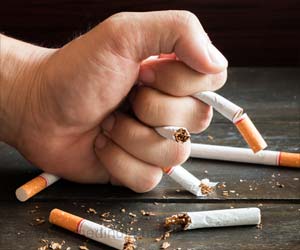Eduardo Jorge has been working hard for the last eight years to turn Sao Paulo into a greener city that thrives economically

Famous for its traffic jams, Sao Paulo is home to 11 million people and its sprawling metropolitan area has a total population of 20 million, making it the world's seventh largest urban area.
Jorge, a member of the Brazilian Green Party who previously served two terms as the city's health secretary, has been in charge of environmental affairs since 2005.
Later this month, he will travel to Rio to make Sao Paulo's case at the UN Rio+20 summit on sustainable development.
Jorge says Sao Paulo has been a pioneer in Brazil in raising awareness about global warming and taking steps to mitigate it.
"We did a diagnosis of greenhouse gas emissions in 2005 and recognized that global warming exists and needed to be a central element of urban planning," he told AFP.
Advertisement
"Sao Paulo has trash collection throughout the city, including in the favelas (slums), controlled and licensed. We collect 15,000 tons of waste daily," Jorge said.
Advertisement
The other major challenge facing the city is chaotic urban planning and an inadequate mass transit system.
"Sao Paulo began the 20th century with 200,000 people and today has 11 million," Jorge said. "But it still has a 20th century mentality where everything revolves around the automobile."
He underscored the need to curb urban sprawl and social segregation by revitalizing the city's rundown downtown area with vertical construction and services for a mixed population of rich, middle class and low-income people.
The mass transit system requires more funding but must compete for resources with education and health, which together eat up 50 percent of the city's budget.
"Sao Paulo has some wealthy people but a lot more poor people. We urbanized 120,000 favela dwellers and have plans to urbanize another one million," Jorge said.
As for the horrendous traffic congestion -- with four million vehicles clogging the city's roadways on weekdays -- Jorge believes the solution is to impose greater restrictions on the use of cars, trucks and motorcycles.
"We need to fine the polluters to discourage the superfluous use of cars and secure additional resources to fund public transport," he said.
But Jorge conceded that this was easier said than done, given "the power of the auto industry and Petrobras (the state-owned energy giant)."
"Unfortunately nobody has the courage to criticize them," Jorge said. "The auto industry and Petrobras rule in Brazil. They are pampered by the media, the government, elected officials, the trade unions."
Jorge sees Big Oil and the auto sector as the biggest impediments to steering Brazil full steam toward a green economy.
He said he will use his attendance at the Rio+20 gathering to press for more resources for cities from the state and the federal government.
The 62-year-old father of six and former doctor said he planned to return to public health when he steps down as the city's environment secretary at the end of the year.
Source-AFP








